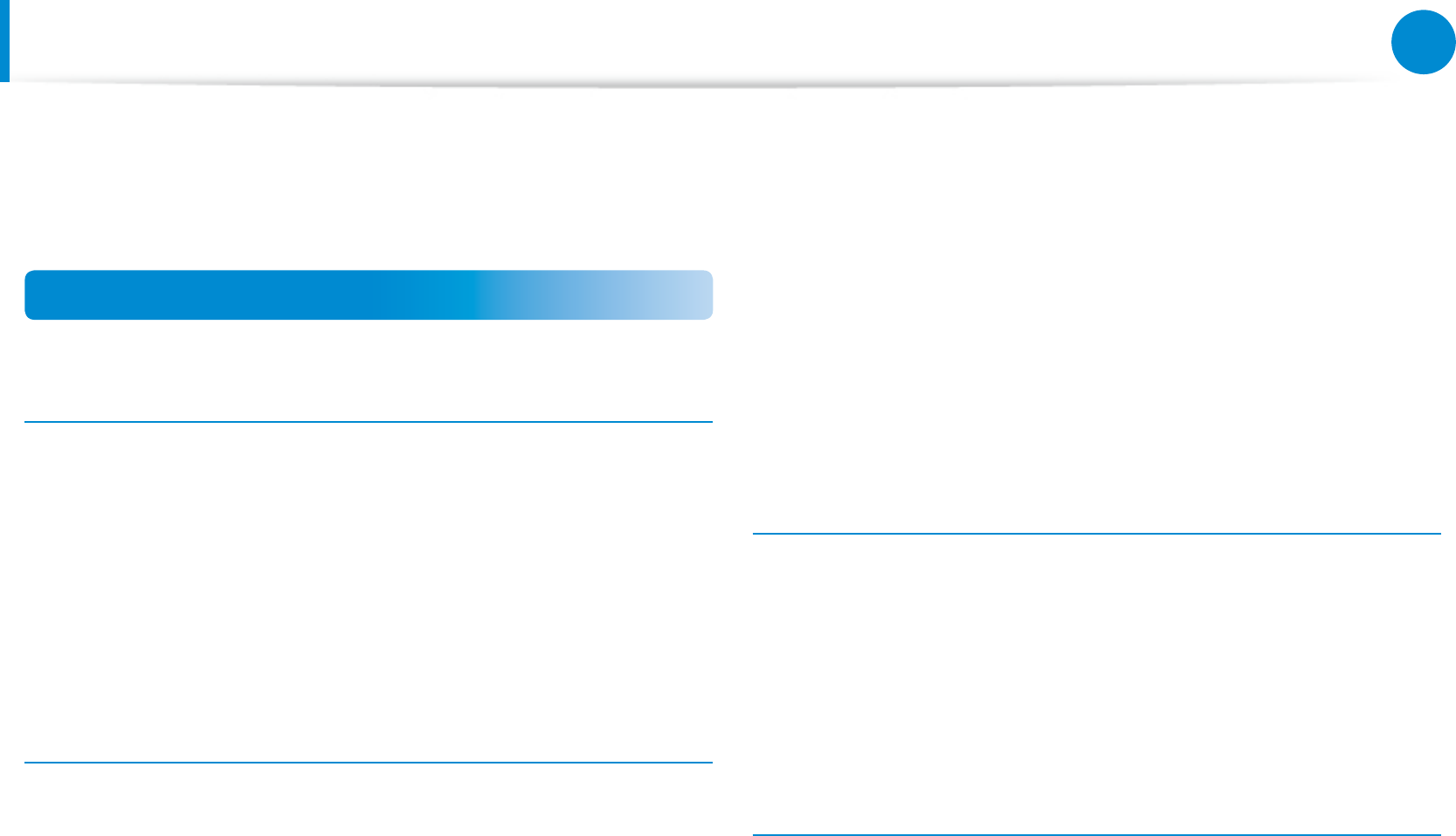
102
103
Chapter 5.
Troubleshooting
You can look for potential problems that may occur with the
system and view the relevant solutions. Also, you may look up any
reference(s) required while operating the computer.
Recovery Related
Q1
What is a Recovery Area?
A
Samsung computers have an additional partition to recover
computers or save backup les. (Only for models with the
Recovery.)
This partition is called a Recovery Area and it includes a
recovery image that comprises of the OS and application
programs.
Q2
The capacity representation of the hard disk
drive(HDD) in Windows is dierent from the product
specications.
A
The capacity of the storage device (HDD) of the
manufacturer is calculated assuming that 1KB=1,000 Bytes.
However, the operating system (Windows) calculates the
storage device capacity assuming that 1KB=1,024 Bytes,
and therefore the capacity representation of the HDD in
Windows is smaller than the actual capacity.
The capacity representation in Windows may be smaller
than the actual capacity because some programs occupy a
certain area of the HDD outside of Windows.
For models with Recovery, the HDD capacity representation
in Windows may be smaller than the actual capacity because
Recovery uses a hidden area of about 5~20GB of the HDD
to save the recovery image, and that hidden area is not
counted towards the total size available to Windows.
The size of Recovery varies by models because of the
dierent size of applied programs.
Q3
What is a recovery image?
A
This refers to the computer status (including operating
system, specic driver(s), software(s), etc.) which is converted
to a data image. It is required to recover your computer and
is embedded in the computer's hard disk. However, this is
not provided for storage devices where the capacity is less
than 64 GB due to the small capacity.
Q4
How can I restore a computer that does not have the
Recovery program?
A
You can restore the computer using the system recovery
function provided by Windows.
Refer to the Restore Functionality item in the Help section
for more details.
Q&A


















